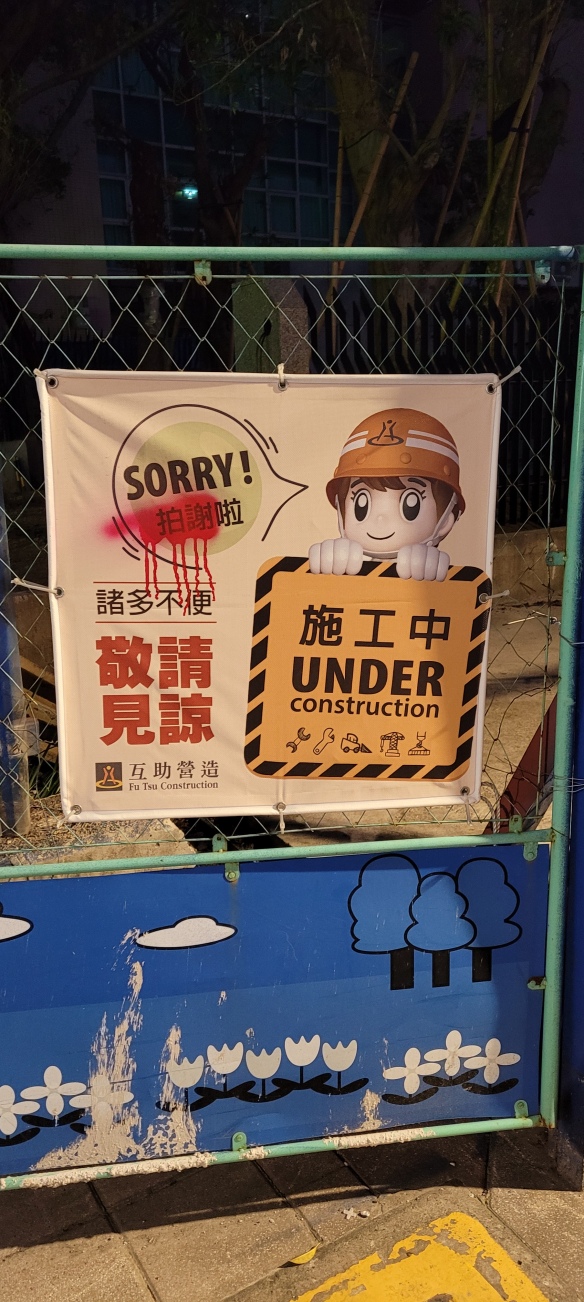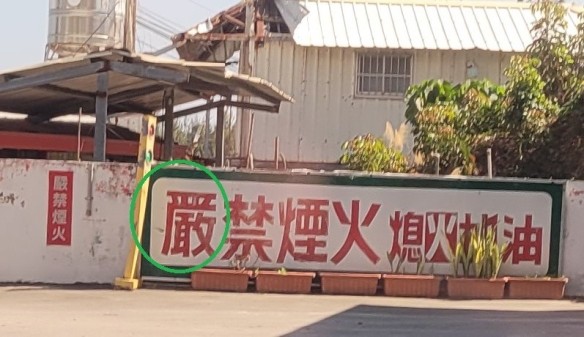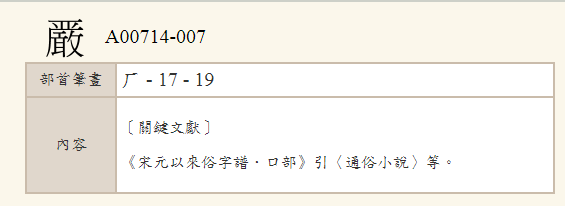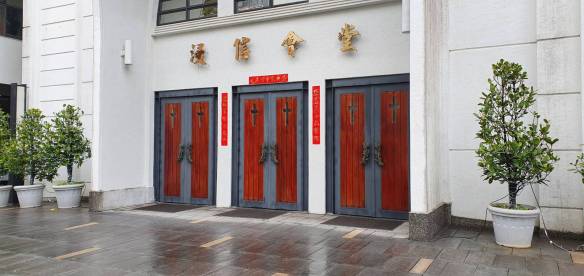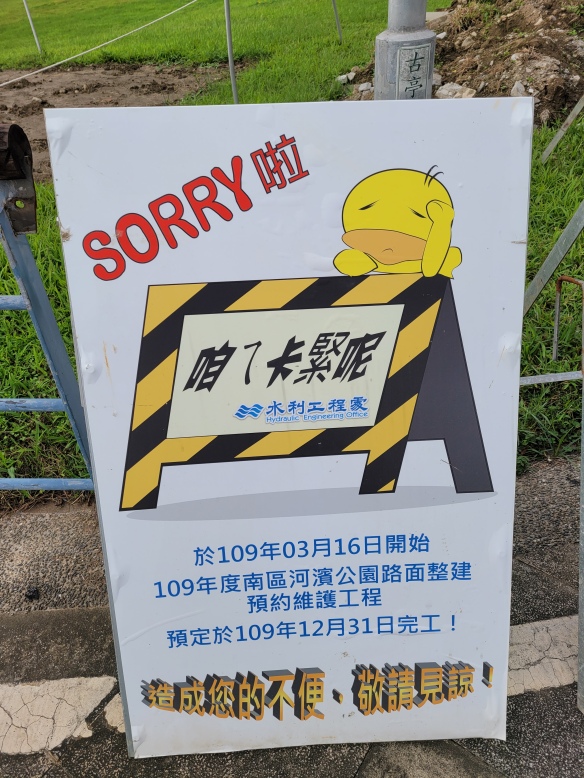I came across these spray-painted messages on the road on the way to my local 7-11 last night. Messages sprayed on to the street are common in Taiwan, and they can be written by car/motorbike tow trucks telling people what number to call to get their vehicle back or construction companies or the city government telling people not to park in the street as construction is about to take place.

I could see that it said 「路面xx勿停車」 (“road surface XX, don’t park), but I was a little puzzled by the third and fourth characters, as they both looked like they had 「金」 as radicals. I assumed that as they were repaving the road, it’s likely that the second one was 「鋪」 (to pave), but I’d never seen the character 「銑」 before. So I wandered down the street a bit further to see another of the messages:

The 「鋪」 was a bit clearer in this pic, so I tried to look up the characters 「銑鋪」 (xiǎnpū), and came across this old video from the China Times, suggesting that I wasn’t the only one to be puzzled:
According to this video, the original meaning of 「銑」, milling, has been extended here, to mean “to roll flat/steamroll.” It seems to be a more technical way of referring to resurfacing roads, but a more common and colloquial way to say this is 「路面翻修」 (lùmiàn fānxiū).












